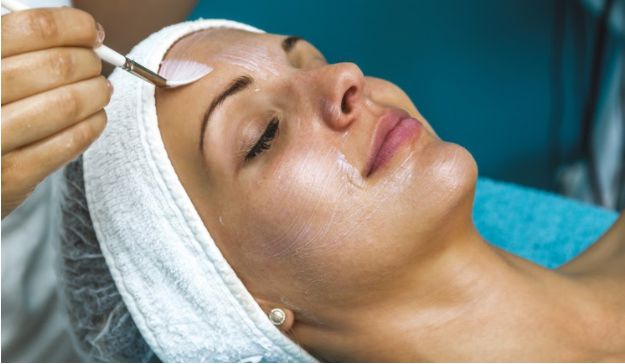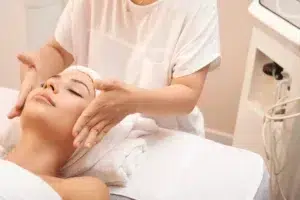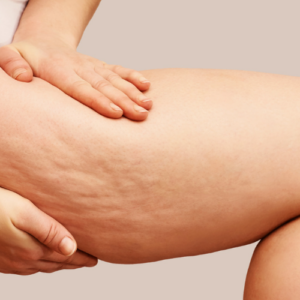
Under the right conditions, your skin can become incredibly beautiful. Unfortunately, the right conditions aren’t always easy to achieve. Even when you spend all day caring for your skin, the chances are that you’ll still have to deal with a few skin conditions.
One of the most popular of these skin conditions is acne, hence the popularity of the conversation about tips to prevent acne scars. The annoying thing about acne is that it leaves no good memories. When acne develops, it hurts and leaves that part of your body uncomfortably sensitive.
When it’s on your skin, it looks like a tiny little volcano is growing out of your body. When it leaves, it drops a parting gift in the form of ugly looking scars.
Thankfully, you don’t have to manage acne scars forever. We’ll be teaching you how to prevent/treat acne scars — straight from the experts at Canada MedLaser. Over the course of this article, we will explore effective steps that can help you prevent acne scars.
What Are Acne Scars?
An acne scar is an area of raised or pitted skin that shows up due to damage caused by acne. You see, when you get acne on your face or any part of your skin really, your body immediately tries to fight it. It does this by forming and producing collagen fibres.
PS: Collagen is one of the most important things for your skin health. It is responsible for that radiant glow we all love. It is also responsible for skin elasticity and the prevention of saggy/loose skin.
When your body produces enough collagen fibres, things go pretty well. However, if your body cannot produce enough to combat the amount of acne on your body, you’ll get acne scars.
On the flip side, if your body “overreacts” and puts out too much collagen, you’ll also get scars. So, how then can you treat and prevent acne scars? We’ll get there in a bit. You see, the best treatment for acne scars depends on the type of scar.

What Are The Different Types of Acne Scars?
If you’re going to understand the tips to prevent acne scars fully, it is important to pay attention to this. Most beauty treatment experts categorize acne scars into four main categories.
In reality, nobody really cares about what type of scar they have. They just want to get rid of it. However, knowing the type can help you reduce acne scars with more efficiency. They are:
Rolling scars
These scars are often shallow-looking with smooth and soft edges. Much as the name implies, they make the skin look like a wave.
Boxcar scars
Unlike the one before it, these scars don’t have soft edges. Instead, they sport sharp, well-defined edges with small imprints on your skin.
Keloid or hypertrophic scars
These are raised scars that often look like red spots on your skin. Of all the other types of scars, these are some of the most irritating because they don’t just look unpleasant. They itch and are physically irritating as well.
Icepick scars
These types of scars are narrow, deep and look like empty pores. Of all the other types of scars, these are the most difficult to treat.
How Do You Prevent Acne Scars?
We’ve spent all that time learning about acne scars and what they are. Now, it’s time to teach you how to stop acne scars in their tracks. Here are seven easy ways you can do this:
Treat acne immediately when it shows up on your skin
Some people believe you don’t need to treat a pimple when it shows up. To them, you can easily ignore it, and it’ll go away. They will usually try to back up this argument with examples of how the method works for them and consequently show you their scar-free face.
But, the truth is that doing this will be equivalent to leaving everything to chance. You cannot solve all your problems by ignoring it and simply hoping it will go away, especially not pimples.
So, as soon as you see acne showing up on your skin, start taking steps to get rid of it. For starters, you can get some over-the-counter medication to bring the problem under control. This should be effective enough, depending on the severity of the condition.
However, if this method isn’t working, it’s best to start exploring other options regarding acne treatment in Thornhill. The advantage of doing this is you’ll keep your acne breakouts to a bare minimum. That way, you can prevent scarring.
Do not pop, pick, or squeeze your pimples
Even we have to admit it at this point. It can be incredibly difficult to stop yourself from popping a pimple once it appears. But, no matter how difficult it is, you have to keep yourself from doing it and here’s why:
When you pop, squeeze, or pick a pimple, you’re very likely to be forcing debris to go deeper into your dermis. This will automatically send bacteria into that area, spreading the infection to the otherwise healthy tissue in the deeper layers of your dermis. The end result is an increase in the intensity of the inflammation. This is especially true for serious and deep blemishes like cysts and nodules.
So, the next time you get the urge to pop that pimple, remind yourself that you’ll not just be popping the pimple. Instead, you’ll be infecting other parts of your skin, increasing your healing time and raising your chances of getting scars.
Do not try to peel off your scabs
All these rules about what you can and cannot touch can be truly exhausting. But, they’re necessary if you’re going to prevent acne scars. Now, to put things in perspective, you should know that scabs are like the human body’s natural bandage.
They’re those fairly rough patches of skin that cover and protect your wound as it heals. If you’ve managed to get good treatment for acne scars in Thornhill, you may have one or two scabs here and there.
Do not peel them off. When you do, you’re likely to reopen the wound and worsen it. You may end up with an even bigger scar than you would’ve had in the first place.
Figure out whether you’re prone to scarring or not
As sad as this might be to take in, the reality is that some people are more likely to scar than others when acne is involved. It can be that your body produces too little or too much collagen. It can also be that your skin type is more delicate.
Regardless of the cause, the chances are you’re more likely to scar than some other people. While there really is no way to know for sure by yourself, you can take the time out to observe your acne episodes.
Did you have a lot of scars, or did you come out with one or two? To be even clearer on the issue, you can see a medical aesthetician in Thornhill. This way, you can figure out an action plan against acne ASAP.
Reduce inflammation
The majority of the most serious acne scars often come as a result of large and inflamed blemishes. Alongside scars, they also cause discoloration on the skin. To prevent this from happening, you should keep the inflammation/swelling to a bare minimum.
To do this, you need to avoid irritating your skin while taking a shower or using skincare products. It’s also advisable that you use products that are specifically created to bring down the severity of acne inflammation.

Keep your skin moisturized
As someone who cares about their skin, this shouldn’t be new to you. If you want to prevent acne scars, you need to keep your skin as moisturized as possible. Doing so will help your skin heal properly from acne episodes.
Additionally, it will help make existing scars less noticeable by evening out your skin tone. Just ensure you don’t overdo it so you don’t create an environment for fungus to breed.
Use sunscreen
Overexposure to sunlight can darken your acne scars and spots, making them even more unpleasant to look at. So, ensure you apply sunscreen at all times. It may not directly treat your acne scars or prevent them from showing up. However, it will make them significantly less noticeable by others.
How Do You Treat Acne Scars?
Our tips to prevent acne scars will significantly help you avoid the condition. But, if you have acne scars already, you may need specific treatments. In that case, you should pay attention as we explore the best treatment options for acne scars:
Micro-needling
One of the most popular ways to fade acne scars is through micro-needling. This peculiar cosmetic procedure works by puncturing your skin repeatedly with very tiny but sterile needles. Despite how unpleasant it may sound, it actually is quite painless, and it offers balanced results across your skin.
The only downside is it can take a bit of time before you start to see significant results. Typically, you may need about four to six different sessions. However, when done right, micro-needling results can be pretty impressive.
Related article: Do Topical Treatments Work in Removing Acne Scars?
Laser resurfacing
This technique is also referred to as photorejuvenation. Laser skin resurfacing treatments remove and/or reduce acne scars using lasers, photodynamic therapy, or intense pulsed light. The entire process involves the creation of controlled wounds across your skin.
When your body senses these wounds, it begins the healing process. But, because these wounds have been strategically created across your skin, they won’t leave ugly acne-like scars.
Instead, they’ll help to create new cells where the acne scars used to be. And, this will translate to generally healthy-looking skin.
As long as you work with a certified medical aesthetician, laser resurfacing testaments are effective. Some of the advantages include:
- Permanent results. Once you get the scars healed in one part of your skin, they’re not coming back.
- It is safe for most skin types.
- It doesn’t need a lot of downtime. After the procedure, you can be back on your feet within a few days.
- You’ll begin seeing results as soon as one month after the procedure.
- Apart from treating acne scars, it is incredibly useful for other skin conditions. Some of them include wrinkles, melasma, enlarged pores, brown or red skin spots, etc.

Chemical peels
This is one of the most effective ways to get rid of acne scars. Chemical peels work using a deep exfoliation technique to remove the top layer of the skin. This automatically leads to skin regeneration and an enhanced skin appearance. There are different types of chemical peels for removing acne scars. But, three of the most effective are:
- Glycolic Acid Peels: This is one of the mildest chemical peels available. It merely removes the outer skin layer. It has a concentration range of 10% to 70% and is perfect for dealing with superficial scarring.
- TCA (Trichloroacetic Acid) Peels: This is significantly stronger than glycolic acid peels. As such, it is used for moderately serious acne scars. Alongside that, it can be used for wrinkles and pigmentations. It helps to solve your scarring problem by employing strong acids that remove your skin’s outer layer in a controlled manner. This procedure is medical-grade and should only be performed by a trained, qualified, and experienced medical aesthetician.
- Phenolic Peels: This is the strongest of all three methods of chemical peels. It is so strong that it often requires anesthesia during the treatment process. But, it can combat the nastiest acne scars alongside folds and facial wrinkles.
Considering that chemical peels are just about the strongest ways of getting rid of acne scars, it is important to note a few things about them.
- Before the peel, you must ensure you take a break from certain activities. These include waxing, electrolysis, and other hair removal methods that are depilatory.
- You need a thorough skin cleansing before you start the treatment session. This helps to ensure no dirt on your face will inhibit the effectiveness of the chemical peels.
- You’ll need to exercise patience during the process as some time must pass before the chemical peel solution is removed.
- If your acne scars are deep and penetrate multiple layers of skin, you’ll need to go for multiple sessions. This is the only way you can achieve permanent results with serious acne scarring.
- After your chemical peel, you must moisturize very often. If you allow your skin to dry out, you’ll defeat the purpose and cause yourself a substantial amount of discomfort.
- The process may leave your skin fragile for seven days. This is normal. Just remember to be gentle while cleaning.
Are Acne Scars Genetic?
This is one of the many questions people have about acne. Now that you’ve fully digested our tips to prevent acne scars, it’s worth knowing that acne scars aren’t genetic.
If you’re having difficulty treating an acne scar, it isn’t because you got it from your parents, or it’s a part of your genes. The scars are simply hard to treat, or you need to change your approach.
However, you should know that some of your genes can influence how you develop acne. So, if your parents had issues with acne, you probably will too. By extension, you may have to deal with acne scars. But, acne scars themselves aren’t genetic.
In Conclusion
Acne scars are hardly ever pleasant. If you’re tired of living with this condition you should follow our tips to prevent acne scars. However, if you have them already, you should check out our medical spa in Thornhill.
Here at Canada MedLaser, we offer different effective, safe treatments for acne scars. From microdermabrasion to chemical peels and laser skin resurfacing, we can select the right one for your skin type. Book a free consultation session with a medical aesthetician in Thornhill today!
Book Free Consultation
"*" indicates required fields
-
Facebook
-
Twitter
-
Linkedin





